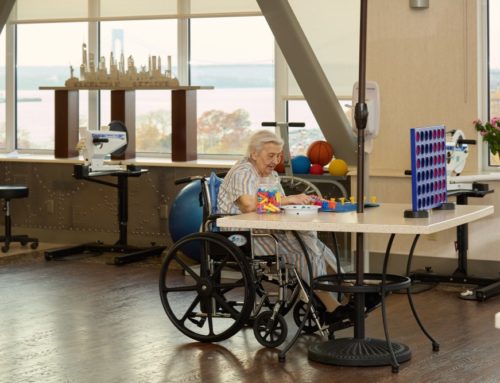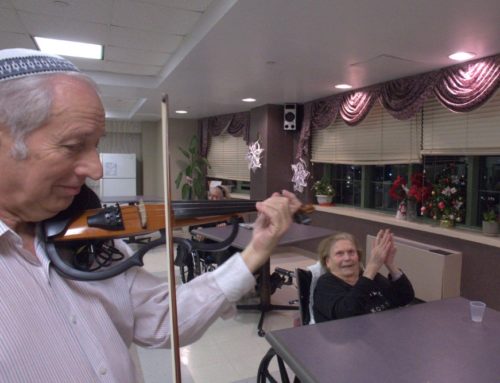Speech therapy for seniors is crucial especially if your elderly loved ones are suffering from dementia and stroke. Speech is important for the elderly to communicate effectively with their caregiver, but also to socialize with others. A speech therapist teaches elderly patients how to swallow properly as this function is also affected by speech impairment. If you notice that your loved one has difficulty communicating you may need to consider getting speech therapy for him or her.
Speech Therapy for Seniors to Help Evaluate Their Condition

Before your loved ones undergo speech therapy for seniors, they need to undergo a comprehensive assessment to determine their condition. Speech impairment is a natural process as the vocal cords become less elastic through time. However, it can also be caused by many reasons like dehydration, depression, medication and injuries to name a few. At Haym Salomon, a Brooklyn-based rehabilitation and nursing home, we have a speech-language pathologist. They can look into the problem of your loved ones and how the issue can be addressed.
Speech Therapy Helps Seniors Do Vocal Exercises
Since vocal cords become less elastic as we age, the voice of elderly changes through time. It can be difficult to speak in a manner that they are not accustomed to. As a result, they feel frustrated and even depressed with their situation. Speech therapy for seniors is a way to help them re-learn how to speak using vocal exercises. It also helps senior patients get accustomed to their situation and work with what they have to communicate with others once more.
Brooklyn-based Rehab Centers Offer Speech Therapy
Speech therapy for seniors is offered by Brooklyn-based rehab centers and nursing homes. Since more elderly people suffer speech impairment following stroke, rehabilitation is very important as soon as possible. The problem with putting off speech therapy to a later date is that it will be difficult for them to recover completely.
This content comprises informative and educational resources only and can not be considered as a substitute for professional health or medical guidance. Reliance on any information provided in this article is solely at your own risk. If you have any inquiries or apprehensions about your medical condition or health goals, talk with a licensed physician or healthcare provider.






Leave A Comment